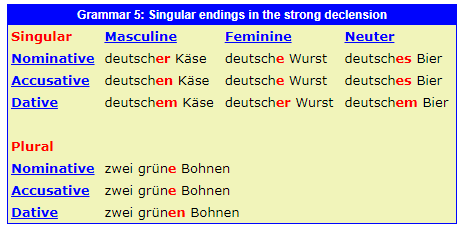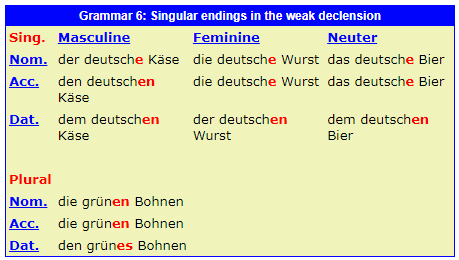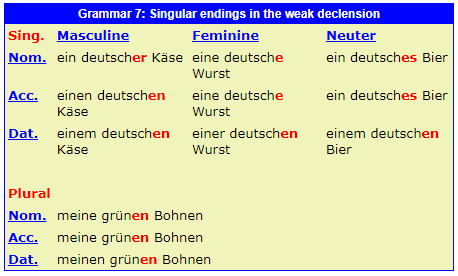In Chapter 5 we looked at adjective endings after definite and indefinite articles. In this section we have met the third type of adjective endings. These are used in the following circumstances:
when an adjective follows a number greater than one:
- i.e. "zehn frische Brötchen"
when the adjective is preceded by a quantity:
- i.e. "ein Pfund grüne Bohnen"
when the adjective is not preceded by any type of article
- i.e. "Welche möchten Sie denn, grüne oder schwarze?"
The endings for an adjective which follows such endings, which we call the strong declension, are given below. First the singular endings:

Weak declension
We can now complete the endings tables for the other declensions by adding their plural forms. Firstly for adjectives following the definite article - also known as the weak declension. Note too the way that the definite articles decline in the plural:

Mixed declension
Finally, here is the "mixed" declension - namely the form of the adjective when it follows the indefinite article or a personal possessive. Note again the plural adjective endings, and the way in which "mein" ("dein", "sein" etc.) declines in the plural:

 英语
英语 日语
日语 韩语
韩语 法语
法语 西班牙语
西班牙语 意大利语
意大利语 阿拉伯语
阿拉伯语 葡萄牙语
葡萄牙语 越南语
越南语 俄语
俄语 芬兰语
芬兰语 泰语
泰语 丹麦语
丹麦语 对外汉语
对外汉语

